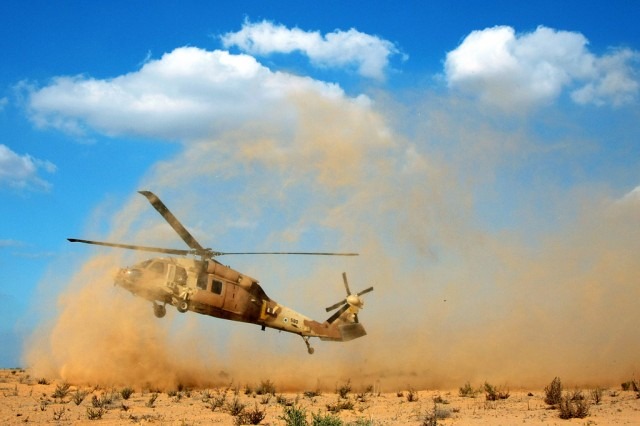If You Can’t Take the Heat, Get Out of the Operations Room
Each and every moment is critical for survival. Pressure is at the max and life and death situations are determined within seconds. These are the crucial moments when an IDF chopper makes its way to evacuate an injured soldier from the battlefield.


Operations officers and specialists coordinate almost everything that happens in this squadron of the IAF. They manage the daily flight schedule and keep track of all the critical information. During times of emergency, it is their job to make sure a chopper is in the air and on its way to the evacuation point as quickly as possible.
“The operations room is the heart of the squadron,” says Lieutenant Dana, an operations officer in the Desert Birds Helicopter Squadron. “The success of helicopter evacuations depends on our work.”

“When we get the order [to evacuate a wounded soldier], we immediately contact the pilots who are on-call. At the same time, we acquire all the relevant information and intelligence, make sure that the crew has all the necessary equipment, and confirm that all the technical aspects are ready for the flight. Many things need to be done simultaneously for the helicopter to take off,” explains Lt. Dana.
“Non-Stop Adrenaline”
During Operation Protective Edge, the pressure was at its highest with battle-zone evacuations on a daily basis. Corporal. Inbal, an operations specialist, tells us what it was like. “The operations room was very busy, evacuation after evacuation and non-stop adrenaline. There were helicopters in the air around the clock, ready to get soldiers off of the battlefield.”


“Besides the high pressure, there’s also emotional hardship,” continues Cpl. Erez. “It’s not easy to constantly hear about injured soldiers on the radio. One morning, around 4:00 AM, I heard six soldiers were killed in Shuja’iya [Gaza]. Since their names weren’t released yet, it was nerve-wracking. I feared that the dead soldiers were my friends, but I had to continue working.”
Cpl. Erez’s commander, Lt. Dana, explains how she worked through the intense pressure: “When things get difficult, you try not to think about them too much. You have to stay focused on the task at hand – to get the helicopter in the air as fast as possible for example. The most important thing is to keep smiling – that’s what gets me through the hardest moments.”
Operations officers may not be flying the helicopter, but their fast and efficient work in one of the IDF’s most high-pressure environments is what gets injured soldiers off the battlefield and saves lives.



